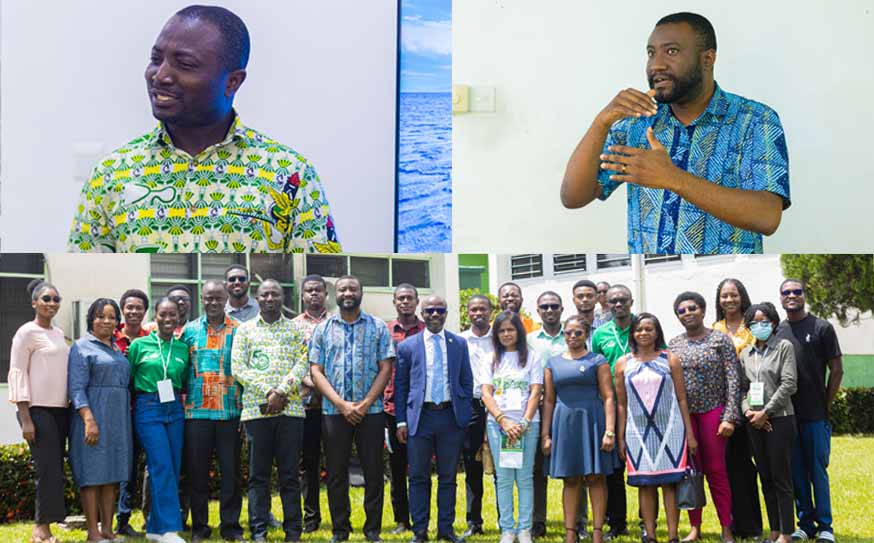Artificial intelligence (AI) can help collect and analyse health data to improve decision-making and speed up healthcare delivery, says Dr. Prince Ebenezer Adjei, a Lecturer with the Biomedical Engineering Programme at the Department of Computer Engineering, KNUST, and a Research Fellow with the Global Health and Infectious Diseases Group at the Kumasi Centre for Collaborative Research (KCCR).
Speaking at a workshop held at the KNUST University Hospital under the sub-theme “AI in Medicine: Advancing Diagnostics, Research and Patient-Centred Care,” Dr. Adjei said technology in healthcare has evolved to make data collection easier and more useful for clinicians.
“Technology now makes it easier to collect data and condition it in ways that clinicians can access and interpret quickly,” he said. “Humans have done well in building systems to gather data through electronic health records and mobile apps, but the gap lies in drawing insights from that data.”
Dr. Adjei explained that AI is not the software or hardware people see in daily use.
“AI is not the software on our phones or computers. It’s not the cameras, drones, or devices we see,” he clarified. “Rather, it’s an abstract mathematical model that powers those visible innovations. Just as a light bulb expresses electricity but isn’t electricity itself, the technologies we interact with simply express AI.”
He said this perspective should inspire professionals to imagine how far innovation can go in healthcare delivery. Real progress, he added, will depend on strong collaboration across disciplines, combining expertise from medicine, engineering, and data science to create meaningful, practical applications of AI in healthcare.
Director of University Health Services, Dr. Nana Kwame Ayisi-Boateng, commended participants at the close of the two-day AI healthcare workshop. He said AI should not be viewed as a threat but as a tool that enhances human capability.
“AI is not replacing human intellect,” he said. “It is not a bad thing to be helped by AI, but users must apply critical judgment when using its output.”
He urged staff to make responsible use of AI tools by verifying information before submission to supervisors and praised the Summer School Committee, organisers, and participants for a successful programme.

















